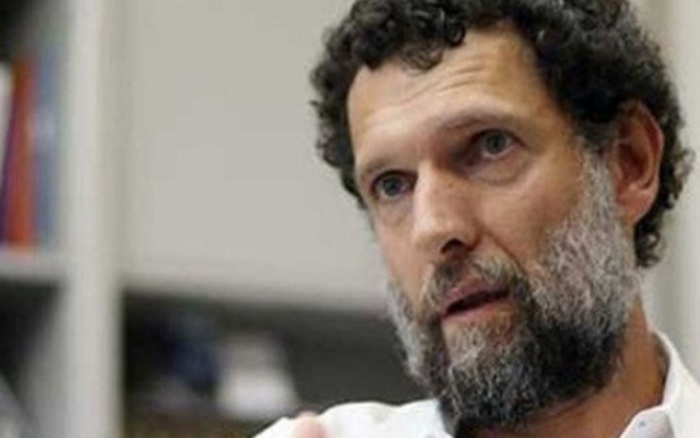A Turkish court ruled to keep renowned Turkish philanthropist and rights advocate Osman Kavala, accused of trying to overthrow the government during the Gezi Park protests of 2013, in jail, at his latest court hearing after more than 700 days in pretrial detention, according to Turkish media reports.
Kavala is accused of orchestrating the Gezi Park mass protests in the summer of 2013 in a trial described as absurd by rights groups. The third hearing of his trial took place at the İstanbul 30th High Criminal Court in the Silivri Prison Complex on Tuesday.
The court ruled that Kavala would remain in jail until the next hearing on Dec. 24, according to support group We Defend Gezi.
Rights groups say the protests had no leadership and that Kavala is being targeted because he supports democracy and the rule of law.
Prosecutors claim the Gezi protests were organized from outside the country to “bring Turkey to its knees.”
“In 635 pages of the indictment there is no evidence of his involvement in a conspiracy or organization of Gezi Park uprisings,” Murat Çelikkan of Turkey’s Human Rights Association said last week.
“They want to show that they can touch anyone. … It’s fear politics,” he said.
Kavala is one of 16 Turkish business figures, academics and artists who face life imprisonment if convicted.
Çelikkan said the presiding judge had been removed from the case after twice voting for Kavala to be freed
Kavala has been in jail since November 2017 and has become a symbol of what activists say is the deliberate targeting of civil society.
He was among tens of thousands of people rounded up after an attempted coup in July 2016.
A respected figure in intellectual circles, Kavala is the chairman of the Anatolian Culture Foundation, which seeks to bridge ethnic and regional divides through art, including with neighboring Armenia, with which Turkey has no diplomatic ties.
“He’s a bridge-builder, reaching different parts of the country. That alone breaks taboos in Turkey. He’s a great advocate of the rule of law and a democratic Turkey,” said Emma Sinclair-Webb, of Human Rights Watch.
